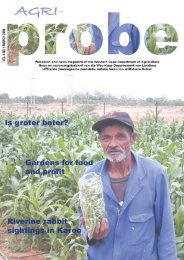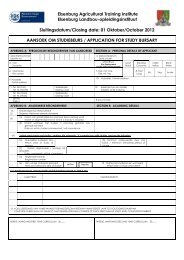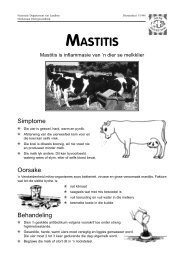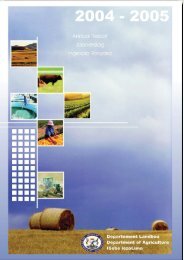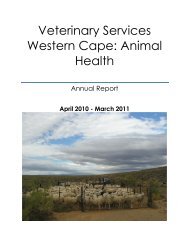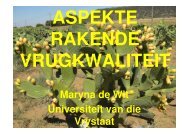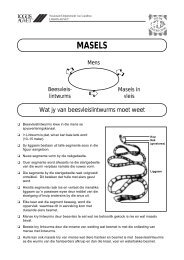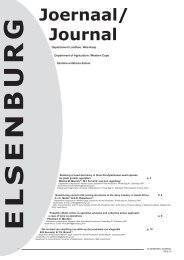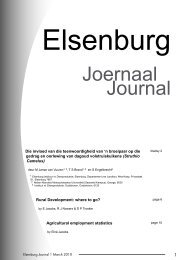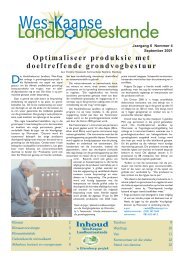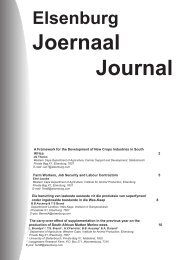honey bush tea - Department of Agriculture: Western Cape
honey bush tea - Department of Agriculture: Western Cape
honey bush tea - Department of Agriculture: Western Cape
You also want an ePaper? Increase the reach of your titles
YUMPU automatically turns print PDFs into web optimized ePapers that Google loves.
In addition, the Europeans have a longer history <strong>of</strong> the use <strong>of</strong> natural products with<br />
medicinal properties for the treatment <strong>of</strong> dermatological compositions with Chamomile<br />
being among the top three selling preparation to this usage (Chung, 2000). Therefore<br />
<strong>honey</strong><strong>bush</strong>, like rooibos, has unprecedented market opportunities in skin care products<br />
and hence in the cosmetic industry.<br />
2.2.7 Organic and Fair Trade<br />
In Europe, there is a growing demand for organic products. Total sales <strong>of</strong> organic food<br />
in Europe were estimated at €10 billion in 2002. The average growth rate annually is<br />
estimated between 5-15%. The Germany alone amounted to €3 billion <strong>of</strong> total sales in<br />
2002, the Netherlands (€380 million) and UK (€1,45 billion) (www.sippo.ch)<br />
There is also a growing demand for fair trade products, although still a very small<br />
proportion <strong>of</strong> international trade like organic products. The fair trade market accounts<br />
for US$ 400 million in retail sales each year in Europe and the USA, or 0.01% <strong>of</strong> global<br />
trade. In Europe sales <strong>of</strong> fair trade products through alternative channels and<br />
supermarkets is calculated to be at least $228 million. The fair trade product with the<br />
highest market share is banana in Switzerland which has achieved 15%, but elsewhere<br />
the market share for fair trade products such as <strong>tea</strong> and c<strong>of</strong>fee is at most 2.7%. An<br />
increasing number <strong>of</strong> products are being traded on the basis <strong>of</strong> fair trade relationships<br />
and some producers that learned about export under the tutelage <strong>of</strong> fair trade partners<br />
are now able to enter conventional export markets (Tallontire, 2001).<br />
Since these two systems, organic and fair trade complement one another, fair trade<br />
organisations have become an important distribution channel for organic products in<br />
Europe, particularly in Germany, Switzerland and the Netherlands, but also in a number<br />
<strong>of</strong> other markets. As one <strong>of</strong> the traditionally fairly traded products, the market for<br />
organic <strong>tea</strong>s is growing strongly and Fair Trade organisations are pioneering work to<br />
develop environmentally-sensitive production and cultivation methods. Honey<strong>bush</strong> from<br />
Haarlem has already received the fair trade status which is an added advantage and is<br />
believed to be a start to other lucrative markets.<br />
“If it has a fair trade status, it’s a bonus, and if also organic, it’s a double bonus”.<br />
16




